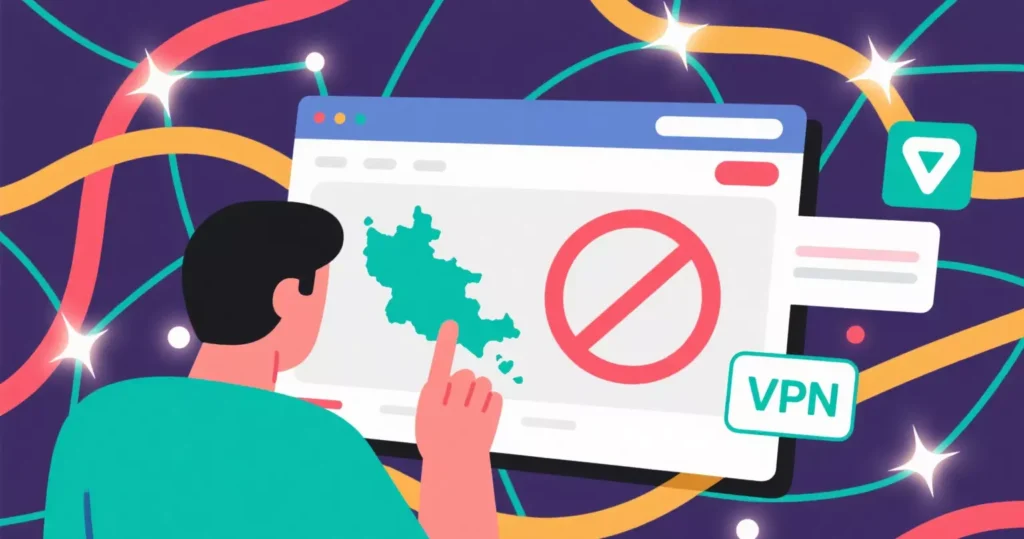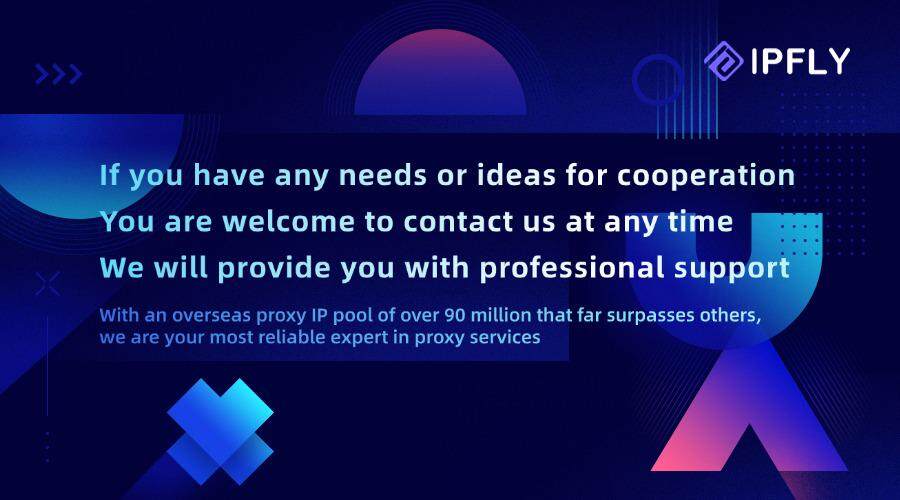Ever tried accessing a website or video, only to find it blocked because of your location? It’s a common issue in 2025, and the go-to solutions are typically proxies or VPNs.
While VPNs encrypt your entire internet connection, proxies work differently by routing only specific app or browser traffic. Each has its pros and cons. Both tools promise to hide your IP address and help you bypass restrictions, but which one truly suits your needs?

Proxy vs VPN: Quick Comparison
| Feature | IPFLY Proxies (All Tiers) | VPN |
| Coverage | App or browser-specific | Full device & system-wide |
| Speed | High (no encryption overhead) | Slightly slower due to encryption |
| Privacy | IP masking only | Full traffic encryption |
| Setup | Quick per-app configuration | Requires client installation |
| Ideal For | SEO, scraping, automation, ad verification | Public Wi-Fi, secure banking, remote work |
When Should You Use a Proxy?
Use proxies when speed, scalability, and flexibility matter most, especially for targeted online tasks. At IPFLY, our proxies are widely used for:
Ad Verification: Check localized ads without detection.
Web Scraping: Collect public data efficiently without bans.
Social Media Management: Run multiple social or e-commerce accounts without getting flagged.
SEO Monitoring: Track regional SERPs and competitors effortlessly.
Market Research: Gather accurate, real-time data from different regions without skewed results or restrictions.
E-Commerce: Manage multiple store accounts, scrape pricing data, and verify listings from different regions without restrictions.
When Should You Use a VPN?
A VPN is valuable when your priority is encrypting all internet traffic from your device, particularly on unsecured networks like public Wi-Fi. Use VPNs for:
Secure Remote Work: Encrypt company data while accessing private servers.
Browsing on Public Wi-Fi: Avoid man-in-the-middle attacks at cafes, airports, or hotels.
Circumventing Government Censorship: Access blocked services and websites in restrictive regions.
Personal Privacy: Prevent ISPs and advertisers from tracking your browsing history.
Why VPNs Aren’t Always the Best Choice
While VPNs sound like a universal solution for privacy and access, they’re not flawless. It’s essential to understand their limitations, especially for professional users.
1. Speed Reduction
Because VPNs encrypt all data, they typically introduce latency and reduce connection speeds. Even premium services can’t completely eliminate this overhead, making them suboptimal for tasks like high-frequency scraping or real-time ad verification.
2. Legality Issues
In certain countries (like China, Russia, the UAE, and Iran), unauthorized VPN use is restricted or outright illegal. Getting caught using a VPN in these areas can lead to fines, service bans, or legal penalties. Even in more open regions, VPNs used to bypass geo-blocked content sometimes breach terms of service, risking account suspension.
3. Higher Costs
Quality VPNs with reliable global servers and no data logs are significantly more expensive than proxies. Most offer monthly plans starting at $10–$15, often charging extra for dedicated IP addresses or enhanced privacy options, making them less cost-effective for specialized, scalable online tasks.
4. Account & Service Restrictions
Many online platforms have developed sophisticated VPN detection systems. Streaming services, e-commerce sites, and social media networks often block VPN IP ranges, leading to frequent connection errors or account restrictions. Proxies, particularly residential or static residential proxies like those from IPFLY, are harder to detect and far less likely to get flagged.
5. Limited Customization
VPNs encrypt your entire device’s traffic, leaving you with little control over routing specific apps or browser sessions separately. Proxies, on the other hand, can be selectively applied, making them far more adaptable for complex workflows.
Final Thoughts: Proxy or VPN?
If your goal is speed, scalability, and targeted IP control, proxies — especially from IPFLY — offer unmatched flexibility for business-grade online activities.
If personal privacy and full-device encryption are your top priorities (like public Wi-Fi use or secure banking), a reputable VPN is a better fit.
Many power users combine both: proxies for high-volume, high-speed operations and VPNs for secure personal browsing.
Why More Professionals Choose Proxies in 2025
While VPNs are still a must-have for personal privacy and secure browsing, proxies have become the preferred tool for professional users who value:
✅Faster, more reliable connections
✅Customizable routing per app or task
✅Scalable concurrent sessions
✅Lower detection and ban risk
✅Budget-friendly pricing models
At IPFLY, we’ve built our proxy network with these demands in mind, offering tiered solutions that balance performance, privacy, and price.
IPFLY Proxy Types & Pricing

Whether you’re into web scraping, multi-account management, ad verification, or global e-commerce, IPFLY has a proxy tier tailored for you:
Whether you’re into web scraping, multi-account management, ad verification, or global e-commerce, IPFLY has a proxy tier tailored for you:
| Proxy Type | Starting Price | Key Benefits |
| Residential Proxies | From $1/GB* | Real residential IPs, rotating, unlimited concurrency, ~0.6s average response. Ideal for SEO, scraping, localized testing, and ad verification. |
| Static Residential Proxies | From $5/month | Dedicated ISP-assigned residential IPs. Lower ban risk and stable sessions. Perfect for multi-account management, social media, and e-commerce. |
| Dedicated Datacenter Proxies | From $4/month | High-speed, exclusive servers with global locations. Great for automation, bots, and site testing without performance bottlenecks. |
Residential proxies use GB-based billing for flexible, data-heavy tasks, while other options are priced per dedicated IP.
Final Thoughts: Proxy or VPN?
If your goal is speed, scalability, and targeted IP control, proxies — especially from IPFLY — offer unmatched flexibility for business-grade online activities.
If personal privacy and full-device encryption are your top priorities (like public Wi-Fi use or secure banking), a reputable VPN is a better fit.
Many power users combine both: proxies for high-volume, high-speed operations and VPNs for secure personal browsing.
Ready to Get Started?

Choose your ideal IPFLY proxy today:
🔄 Residential Proxies — rotating, high-concurrency, GB-based
🧱 Static Residential Proxies — stable monthly residential IPs
⚡ Dedicated Datacenter Proxies — fast, monthly, exclusive datacenter IPs
👉 Visit IPFLY.net to compare plans, test options, and see why professionals worldwide trust us for their proxy needs.


